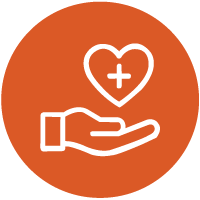
Aim and objectives:
Health care professionals working in nursing homes, in direct contact with fragile and dependent older persons, are essential for access to appropriate care for those with comorbidities and insufficient family support. Staff working in these settings have specific roles and responsibilities in guaranteeing the best quality of life for these older persons. Measuring the health literacy skills and competencies of these health care professionals is a necessary first step in understanding how and when to build targeted health literacy programs for them.
Method :
- by promoting the concept of health literacy in nursing homes;
- by promoting also specific efforts and programs devoted to the development of the health literacy of health professionals in nursing homes;
- by involving the directors and personnel of nursing homes in health literacy programs;
- by developing an ‘organisational health literacy’ approach within nursing homes.
Outcome:
Nursing homes - via the education of their directors and staff - adopt an ‘organisational health literacy’ approach as a principle of management, aimed at guaranteeing the best access to appropriate care for older persons, especially those who are fragile and dependent.
As a secondary objective, the development of health literacy skills for these health care professionals also helps them at home with their own families.
Added value:
The health literacy skills and competencies of staff and professionals in nursing homes, in the framework of an ‘organisational health literacy’ approach, supports the right care pathways for older persons in institutionalised settings. This provides health care professionals with an opportunity to apply health literacy skills and competencies in their everyday working lives.


